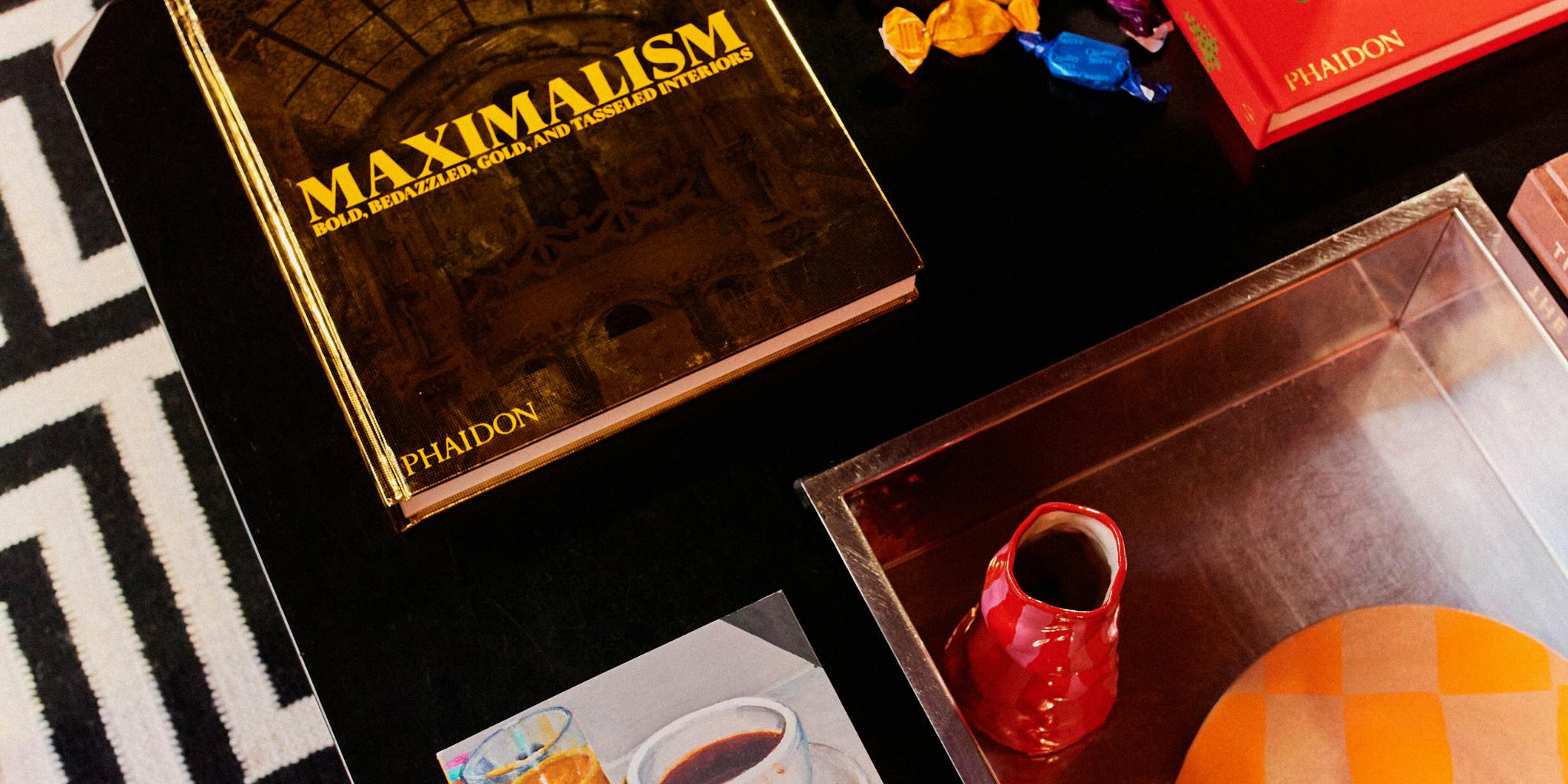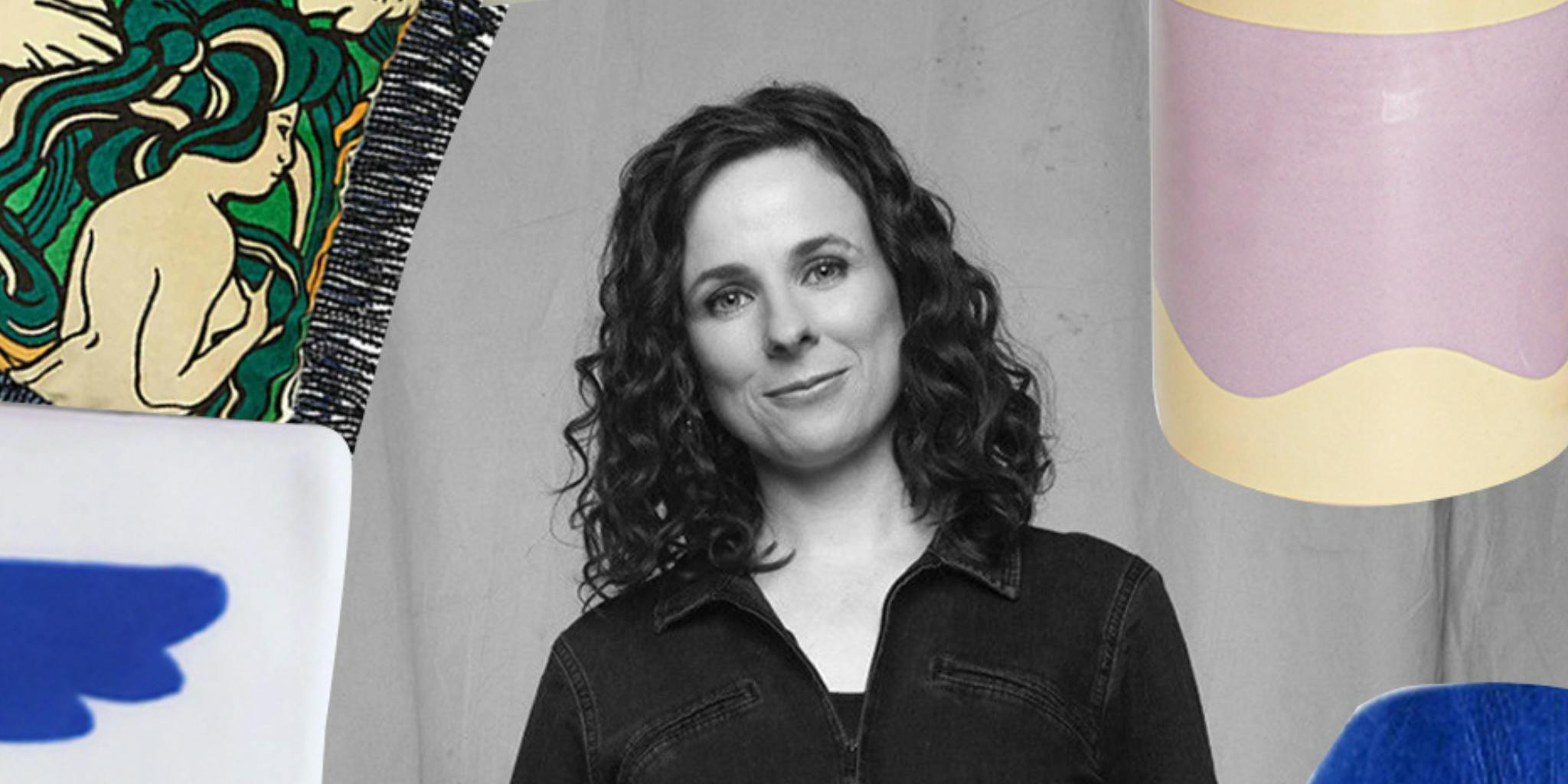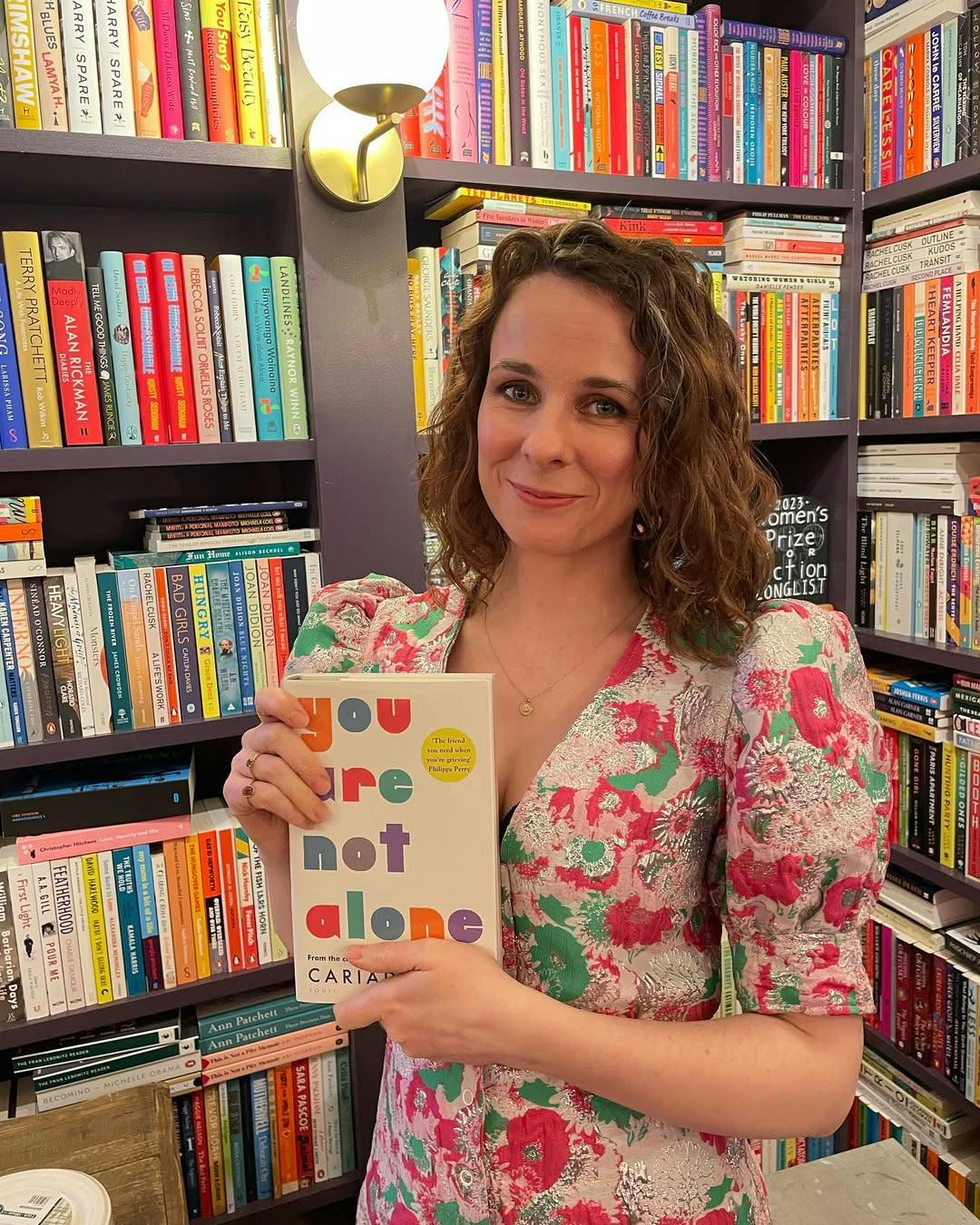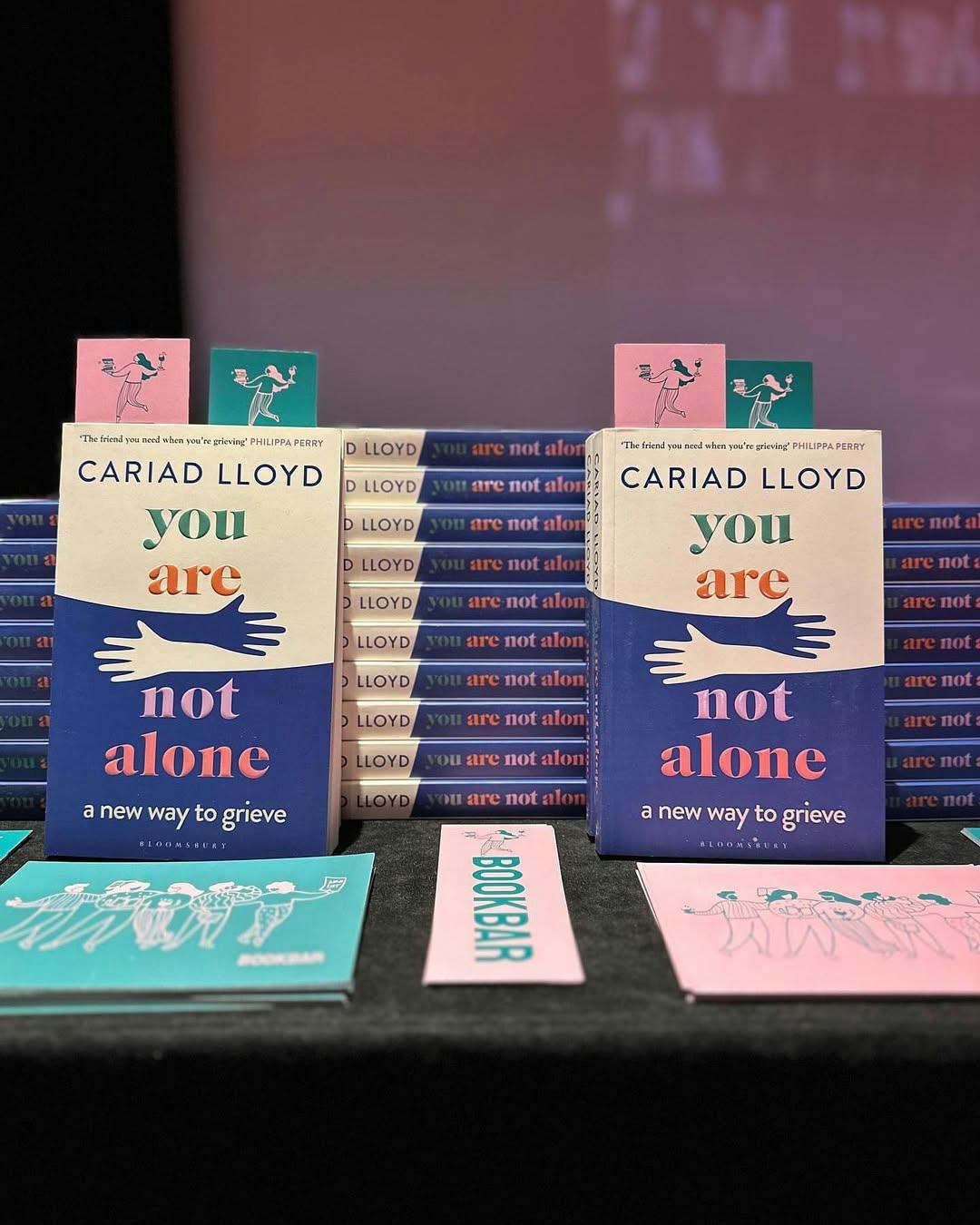

Culture
Reading Rituals with Cariad Lloyd
06.02.2023
We’re fascinated by the curious ritual of reading, and how allowing our inner world to collide with the imagination, wisdom and learnings of others can bring both necessary guidance and absorbing distraction during every phase of life. We checked in with award-winning podcaster, actor, improviser and newly published author, Cariad Lloyd, to learn more about her relationship with reading, the inspiration behind her new book, You Are Not Alone, and the Glassette items she adores most as part of her perfect reading nook.


Interview with Cariad
Where is your favourite spot to read at home? What makes it such a good reading corner?
I mainly read in bed because I have two small children so there aren't many corners that don’t have toys, pens or homemade ‘craft’ stuffed into them, making them not very relaxing to relax in. So, my bed is my main reading spot, it’s also very far away from my desk or any kind of access to the internet which means I will actually focus and read.
What is it about your reading corner that allows for stillness and escaping to another place?
A section of good pillows, different sizes and ‘squidgyness’ is important. Good quality bed sheets, soft lighting that balances not being too bright nor too dark. Also, facing a window helps – I basically need everything to be comfy and with a view of a tree.
What time of day is sacred reading time for you?
Before I go to sleep, I try to read as much as my brain will let me before passing out, even if it’s just a few pages. I like to go to sleep thinking how much I like reading, rather than all the other thoughts in my head.
How do you display books at home? Do things have an order or process to them?
I used to be much fussier about how my books all looked, but now I try to keep only the ones that have really touched my heart and pass the rest on so someone else can enjoy them. The ones that have been kept are divided by category, but it can be confusing if you forget that you have a category called ‘art-deco thoughts about the sea’, or ‘women writing about writing comedy’. Sometimes I wish I’d chosen alphabetical order.
The elusive question - how do you decide what book to read next?
It’s a mixture, there are some books I have to read for my podcast, The Griefcast, but I try to alternate these with others that have caught my eye. I also try and make sure I’m not reading too many writers of similar race, sexuality, nationality or gender - I think it’s important to make a space for voices and stories completely unlike your own.
You've recently written a book of your own, You Are Not Alone, what was the inspiration behind it?
My dad died when I was fifteen of pancreatic cancer. I talked about grief and death an awful lot in the years afterwards, which led me to start my podcast The Griefcast in 2016. After ten seasons and nearly 200 episodes, (guests have included Rev. Richard Coles, Sara Pascoe, Robert Webb, Poorna Bell, Adam Buxton, Aisling Bea and Nish Kumar) I realised I had learned a lot of new lessons that felt useful to share, so decided to collate my experience and lessons from the podcast into a book. It’s a practical guide for navigating grief- the kind of book I would have wanted to read when I joined the club all those years ago.
Quick Fire
The book you’d most like to pass on to everyone you know:
I’m very careful to only pass on books I think people will enjoy and obviously everyone's habits are so different, but having said all that, I’m yet to meet anyone I think wouldn’t have their life improved by reading any of the Moomin books by Tove Jansson. They’re so beautiful and bittersweet – I particularly recommend Moominland Midwinter to get through the really cold, dark days.
The book you’ll be tucking into in February:
I’m currently half way through Vagabonds by Eloghosa Osunde and I’m loving it - magical realism in Lagos.
A poem for getting through the winter:
Snow by Louis Macneice Dog ear pages or bookmarks: Dog ear for bits you want to come back too, bookmark for where you are.
The most hopeful book you’ve read:
A Heart That Works by Rob Delaney about the death of his son, Henry. It’s an extremely raw and incredibly funny love letter from a grieving father. I can’t recommend it enough if you want to truly understand how to support parents in grief.
The book you feel most understood by:
Impro by Keith Johnstone. It’s the bible of UK improvisation and was my first understanding that what I had watched obsessively on ‘Whose Line is it Anyway…?’ had a theory behind it. I’ve been doing my Jane Austen improv show, Austentatious, for twelve years now and it all stemmed from sitting down with Johnstone and discovering this world.
Favourite bookshop in the world:
I love the children’s bookshop in Muswell Hill- the staff’s knowledge is unbeatable. For bigger people, I really love Daunt Books on Marylebone High Street, it’s so pretty and has excellent browsing vibes.
A scent that makes you think of home:
Fresh flowers are what I try to make it smell of but it mostly smells like a lot of stock being reduced. My husband cooks A LOT.
If you could spend a day reading in any house in the world, where would you go?
Years ago I rehearsed a lot of plays in the Chelsea college of Art & Design- there’s a room there with very old windows looking out onto the Thames. It was one of the most peaceful and easiest places to read I’ve ever found myself.
Follow Cariad on Instagram: @cariadlloyd
Cariad’s new book, You Are Not Alone, is out now, published by Bloomsbury Publishing PLC.
READING CORNER FAVOURITESREADING CORNER FAVOURITESREADING CORNER FAVOURITESREADING CORNER FAVOURITESREADING CORNER FAVOURITESREADING CORNER FAVOURITESREADING CORNER FAVOURITESREADING CORNER FAVOURITESREADING CORNER FAVOURITESREADING CORNER FAVOURITESREADING CORNER FAVOURITESREADING CORNER FAVOURITESREADING CORNER FAVOURITESREADING CORNER FAVOURITESREADING CORNER FAVOURITESREADING CORNER FAVOURITESREADING CORNER FAVOURITESREADING CORNER FAVOURITESREADING CORNER FAVOURITESREADING CORNER FAVOURITESREADING CORNER FAVOURITESREADING CORNER FAVOURITESREADING CORNER FAVOURITESREADING CORNER FAVOURITESREADING CORNER FAVOURITESREADING CORNER FAVOURITESREADING CORNER FAVOURITESREADING CORNER FAVOURITESREADING CORNER FAVOURITESREADING CORNER FAVOURITESREADING CORNER FAVOURITESREADING CORNER FAVOURITESREADING CORNER FAVOURITESREADING CORNER FAVOURITESREADING CORNER FAVOURITESREADING CORNER FAVOURITESREADING CORNER FAVOURITESREADING CORNER FAVOURITESREADING CORNER FAVOURITESREADING CORNER FAVOURITESREADING CORNER FAVOURITESREADING CORNER FAVOURITESREADING CORNER FAVOURITESREADING CORNER FAVOURITESREADING CORNER FAVOURITESREADING CORNER FAVOURITESREADING CORNER FAVOURITESREADING CORNER FAVOURITESREADING CORNER FAVOURITESREADING CORNER FAVOURITESREADING CORNER FAVOURITESREADING CORNER FAVOURITESREADING CORNER FAVOURITESREADING CORNER FAVOURITESREADING CORNER FAVOURITESREADING CORNER FAVOURITESREADING CORNER FAVOURITESREADING CORNER FAVOURITESREADING CORNER FAVOURITESREADING CORNER FAVOURITESREADING CORNER FAVOURITESREADING CORNER FAVOURITESREADING CORNER FAVOURITESREADING CORNER FAVOURITESREADING CORNER FAVOURITESREADING CORNER FAVOURITESREADING CORNER FAVOURITESREADING CORNER FAVOURITESREADING CORNER FAVOURITESREADING CORNER FAVOURITESREADING CORNER FAVOURITESREADING CORNER FAVOURITESREADING CORNER FAVOURITESREADING CORNER FAVOURITESREADING CORNER FAVOURITESREADING CORNER FAVOURITESREADING CORNER FAVOURITESREADING CORNER FAVOURITESREADING CORNER FAVOURITESREADING CORNER FAVOURITESREADING CORNER FAVOURITESREADING CORNER FAVOURITESREADING CORNER FAVOURITESREADING CORNER FAVOURITESREADING CORNER FAVOURITESREADING CORNER FAVOURITESREADING CORNER FAVOURITESREADING CORNER FAVOURITESREADING CORNER FAVOURITESREADING CORNER FAVOURITESREADING CORNER FAVOURITESREADING CORNER FAVOURITESREADING CORNER FAVOURITESREADING CORNER FAVOURITESREADING CORNER FAVOURITESREADING CORNER FAVOURITESREADING CORNER FAVOURITESREADING CORNER FAVOURITESREADING CORNER FAVOURITESREADING CORNER FAVOURITESREADING CORNER FAVOURITESREADING CORNER FAVOURITESREADING CORNER FAVOURITESREADING CORNER FAVOURITESREADING CORNER FAVOURITESREADING CORNER FAVOURITESREADING CORNER FAVOURITESREADING CORNER FAVOURITESREADING CORNER FAVOURITESREADING CORNER FAVOURITESREADING CORNER FAVOURITESREADING CORNER FAVOURITESREADING CORNER FAVOURITESREADING CORNER FAVOURITESREADING CORNER FAVOURITESREADING CORNER FAVOURITESREADING CORNER FAVOURITESREADING CORNER FAVOURITESREADING CORNER FAVOURITESREADING CORNER FAVOURITESREADING CORNER FAVOURITESREADING CORNER FAVOURITESREADING CORNER FAVOURITESREADING CORNER FAVOURITESREADING CORNER FAVOURITESREADING CORNER FAVOURITESREADING CORNER FAVOURITESREADING CORNER FAVOURITESREADING CORNER FAVOURITESREADING CORNER FAVOURITESREADING CORNER FAVOURITESREADING CORNER FAVOURITESREADING CORNER FAVOURITESREADING CORNER FAVOURITESREADING CORNER FAVOURITESREADING CORNER FAVOURITESREADING CORNER FAVOURITESREADING CORNER FAVOURITESREADING CORNER FAVOURITESREADING CORNER FAVOURITESREADING CORNER FAVOURITESREADING CORNER FAVOURITESREADING CORNER FAVOURITESREADING CORNER FAVOURITESREADING CORNER FAVOURITESREADING CORNER FAVOURITESREADING CORNER FAVOURITESREADING CORNER FAVOURITESREADING CORNER FAVOURITESREADING CORNER FAVOURITESREADING CORNER FAVOURITESREADING CORNER FAVOURITESREADING CORNER FAVOURITESREADING CORNER FAVOURITESREADING CORNER FAVOURITESREADING CORNER FAVOURITESREADING CORNER FAVOURITESREADING CORNER FAVOURITESREADING CORNER FAVOURITESREADING CORNER FAVOURITESREADING CORNER FAVOURITESREADING CORNER FAVOURITESREADING CORNER FAVOURITESREADING CORNER FAVOURITESREADING CORNER FAVOURITESREADING CORNER FAVOURITESREADING CORNER FAVOURITESREADING CORNER FAVOURITESREADING CORNER FAVOURITESREADING CORNER FAVOURITESREADING CORNER FAVOURITESREADING CORNER FAVOURITESREADING CORNER FAVOURITESREADING CORNER FAVOURITESREADING CORNER FAVOURITESREADING CORNER FAVOURITESREADING CORNER FAVOURITESREADING CORNER FAVOURITESREADING CORNER FAVOURITESREADING CORNER FAVOURITESREADING CORNER FAVOURITESREADING CORNER FAVOURITESREADING CORNER FAVOURITESREADING CORNER FAVOURITESREADING CORNER FAVOURITESREADING CORNER FAVOURITESREADING CORNER FAVOURITESREADING CORNER FAVOURITESREADING CORNER FAVOURITESREADING CORNER FAVOURITESREADING CORNER FAVOURITESREADING CORNER FAVOURITESREADING CORNER FAVOURITESREADING CORNER FAVOURITESREADING CORNER FAVOURITESREADING CORNER FAVOURITESREADING CORNER FAVOURITESREADING CORNER FAVOURITESREADING CORNER FAVOURITESREADING CORNER FAVOURITES